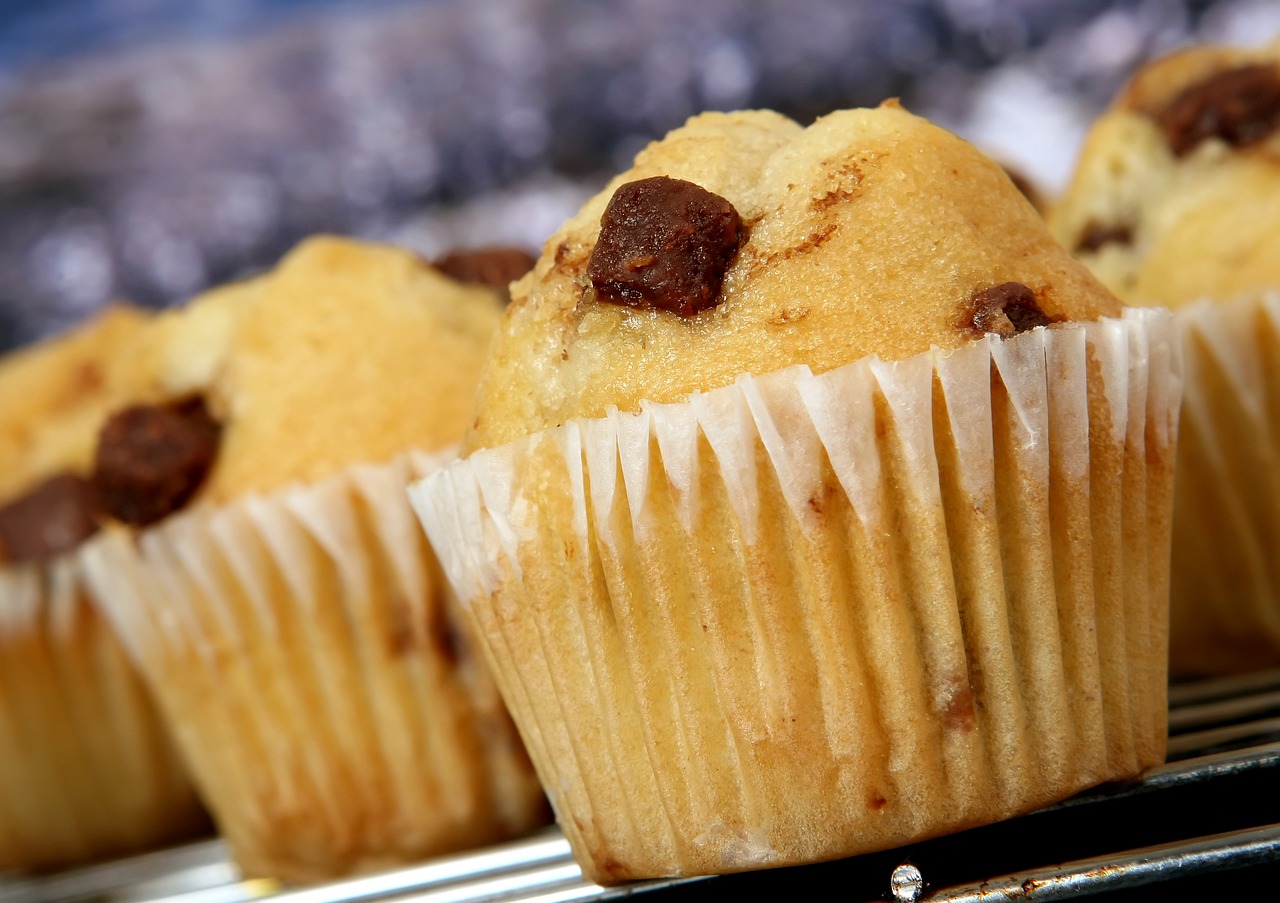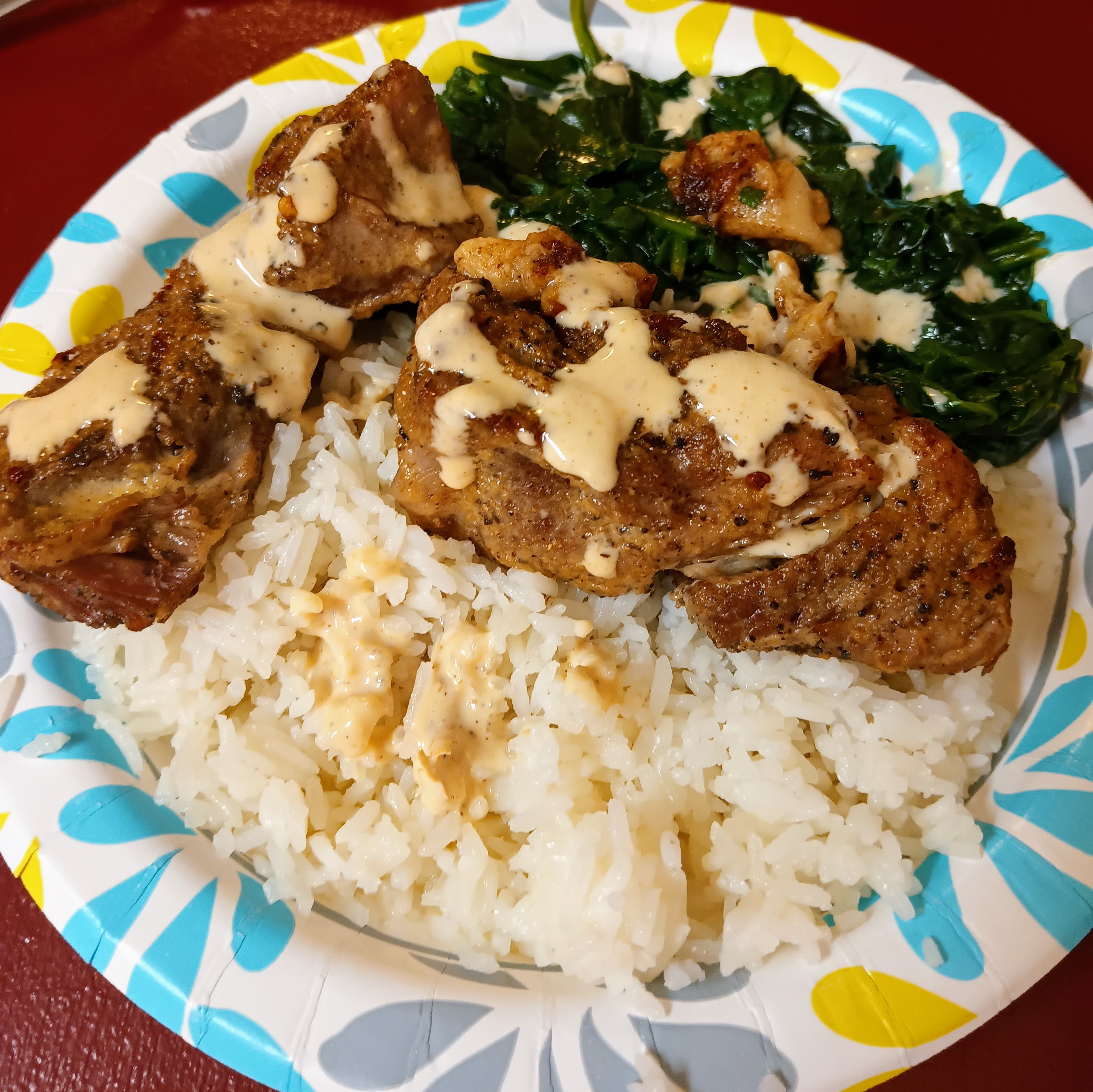The Noble Art of Banging Rocks Together: A Lesson on Experimenting and Improvisation

I’ve been asked a number of times, especially after I started writing for Cook’n, my method for coming up with recipes. Believe me, there is a very long answer to that, but it comes down to two similar, yet different skills: experimenting and improvisation.
Whenever I try to explain the process of creating recipes, I compare it to banging a bunch of rocks together until you see sparks fly. But I’ll get into that later. For now, let’s dig into what exactly experimenting and improvising are.
Experimenting vs Improvising
They sound similar, but these are two very different things. Let’s break them down.Experimenting: This is when you take a scientific approach to your cooking. Perhaps you had an idea—my pizza dough would be so much more flavorful if I proofed it in a salt brine! Okay, full send. You perform a few Google searches and realize you might be onto something. After all, people love focaccia. You put together a shopping list to experiment heavily on your pizza dough, and you keep everything else controlled: same sauce you always use, same cheese, same toppings. Now let’s dig into new ways to make that crust! You repeat this process twelve times over the next four weeks. Badaboom, you finally figured out it works best if you bake the crust and then ladle on a thick sauce and spreadable cheese. You’ve just invented a new type of pizza!
(By the way, this isn’t at all an original idea. Italy makes different pizzas in every region, and the line between focaccia and pizza gets blurred. It’s a shame that the only Italian-style pizza we’re really familiar with in the U.S. is Neapolitan, but whatever).
I’m no stranger to experimentation. It’s how I developed my favorite version of roasted chicken and my myriad of mysterious barbecue sauces. It’s how my mom and Nana came up with the one recipe they refuse to share outside the family—their legendary lemon cookies. Experimenting is an art, but it’s a meticulous, careful, intentional art.
All in all, you start with a goal in mind, and following a controlled method, you study up, test different approaches, and either accomplish your goal or give up. But it’s different from improvising!
Improvising in the kitchen: This is when you act like a jazz musician. It doesn’t necessarily start with a vision in mind (except for making something delicious). Instead, it’s about making the most of what you have on hand. This is no longer trial and error, it’s a live performance and all you can do is draw on your expertise!
You peek into the fridge, and what do you see? Leftover rice from two nights ago and boneless pork ribs that were on sale, but you forgot you’d bought them. You’d better cook all this before it goes bad.
“Hang on a sec,” says your barbecue brain. “Since when do we eat ribs with rice?”
This is not a time for the scientific method… It's time for kitchen jazz. East Asia! you think. They eat pork and rice in East Asia! What’s in your spice cabinet? Ginger, poppy seed, mustard powder, pepper, nutmeg. Asian spices!
Okay, time is short, so you can’t spend six hours smoking these ribs. Let’s instant pot them! Look it up on Google. How long should I cook them for?
Okay, they’re in the instant pot. Can you make a sauce while you wait? What’s a sauce that would complement pork ribs and rice? Not teriyaki, too much sugar, and you only have a little bit of soy sauce. Well, there’s that incredible Alabama-inspired white barbecue sauce you make. Could you adapt it to something more Asian? Sure!
Now what about a healthy side?

An hour later, you’ve made something beautiful. You had no clue what you were making until you were halfway done, but you were self assured that it would be delicious, and in the end you were right.
Experimentation and improvisation are two different areas, but they’re both an art. One is the art of the sonnet writer, the other is the art of the slam poet. Both are beautiful in their own way, and both have some different skills. However, they also have several things in common.
What Skills Do Experimentation and Improvisation Have in Common?
I’ve got a whole list for you!Fundamental Skills: There are a few basics that are always important no matter what you’re making. Some skills are merely useful and time saving, such as mise en place, knife skills, etc. Other skills are foundational to the quality of your meal—which means you neglect them at your peril. Here are a few of those skills:
- Salt: When do you salt your food? How much salt do you use? What kind? How do you layer salt?
- Fat: How do you select a cooking fat? How much do you use? What are the effects of fat at the various stages of cooking?
- Acid: How does acid affect color and flavor? Why is it so crucial, and why do novice cooks so often neglect it?
- Heat: What are the major methods of heating your food, and which ones are my favorite? What about the different temperature ranges? How am I supposed to decide on my heating method?
- Aromatics: Mirepoix, sofritto, the cajun trinity, etc. How do I build an aromatic base for the rest of my dish?
- Basic Recipes: Making pasta from scratch, getting perfect rice every time, getting chicken breast that’s actually juicy (because most people screw it up). What fundamentals should I focus on first?
If the list above is intimidating, here’s a simple tip: start by improving the stuff you already make. Are you a big rice aficionado? Look up on YouTube and Google how to make the perfect rice. What exactly is perfect rice, and how do you know it’s good? What are the different types of rice and cooking styles? The point is you don’t need to learn to hand roll pasta if you’re not intrinsically interested in it. But if you have a thing for making chicken every week, it’s definitely worth your time to reexamine your method.
If you ever want to improve at cooking, first look at the list above. If you’re falling short in any of those skills, it will cripple you every time you cook.
Basic Principles: The next pair of tips are important principles specific to experimenting and improvising.
- Less is more: Here’s a fun secret for you. In artistic pursuits (writing, set design, etc), if there is a noticeable flaw in what you’re doing, a common tactic is to add a bunch of stuff to distract from the flaw. The unfortunate result is you also distract from the work as a whole and reduce your overall quality. This is a common problem in the kitchen, and I especially see it with inexperienced cooks—they’re trying to make something new, and they convince themselves that it would be better if they add everything they have in the pantry. Not true!
Thinking in this way is damaging for two reasons. First, there’s so much stuff that the unique flavors, textures, and aroma of each component cannot shine. Call this the “fruit salad problem,” where the more kinds of fruit you add, the more it cheapens the other fruits. Just because you spent $200 on different exotic fruits doesn’t make it better—it might make it worse! The second problem is that with so much complexity, it’s impossible for you, the artist, to isolate any single factor of the dish and figure out how it can be better. At all times, start as simply as you can. Establish a solid foundation, and build more as needed.
Plus, look at it this way: instead of buying a cheap can of tomato sauce, a cheap bottle of italian seasoning, and a cheap pack of pepperoni, maybe just cut out those last two purchases and instead buy one really nice bottle of tomato sauce. That will go much further in helping you make the perfect lasagna. - Start with what you have: This is important both literally and metaphorically.
First off, if you’re improvising, you don’t have time to run to the store for more eggs. You work with what you have. But from a more intellectual perspective, it’s important to lean into the things you know. If you are a championship breadmaker and lifelong curry enthusiast, then it makes a lot more sense to invent a spicy turmeric bread with curried butter sauce than to decide you should boil a zucchini for an hour and see what happens.
This is a good segue into the next section.
Depth vs Breadth
Some cooks have a PhD-level understanding of how to make the perfect frosting, but have to bust out a saw every time they make burgers. This is depth, but not breadth. Other cooks can spout trivia about every iconic dish in Western Europe, but they can’t make a single one themselves. This is breadth without depth.As a home cook obsessed with good cooking, it’s important to have specialties in your kitchen, but it’s also important to be cultured and knowledgeable about different traditions, styles, ideas, and ingredients.
If you were to take me as an example…
Depth: Several years ago, I decided to specialize in American food. I usually write at least one article about it every week, and most of my cooking is intentionally American-centric. As part of this focus, I’ve learned a ton about barbecue, burgers, regional foods, and rustic meals. This is my specialty, and it’s where most of my depth comes from.
Breadth: At the same time, I know which type of fat tends to go with which culture. I know how other cultures tend to “authentically” prepare their foods versus how they’re often portrayed in America. I also know how some of them tend to “misrepresent” our own food. I’ve dabbled enough in baking that I can improvise some breads, and I’m a fifth-generation child of a family that is religious about pies. This gives me a very broad pool of ideas to pull from whenever I want to get creative.
When I’m experimenting, my goal is generally to push the envelope of American cookery. But when I’m improvising, I usually pull from those broad experiences I’ve had and find a way to make something neat.
"But Matthew, I don’t have a specialty, and I don’t feel like I have much depth!" That’s not a problem at all! My advice to you is to scroll back up to the “Fundamental Skills” section and just work from there. To specialize as a cook, you first specialize in a cook’s skills. The more you work on those skills, the more you’ll naturally start to specialize in the things that interest you most. Before you know it, you’ll be running circles around me with my hoaky little barbecue interests.
Bang Rocks Together and Watch Sparks Fly
This is my final bit of advice (unless y’all want me to go into more detail, and then I can write more articles).It must have been quite a shock to discover that iron and flint, when ground together, generate sparks, and that those sparks produce fire. Can you imagine being the one to discover that?!
When I’m experimenting or improvising, I often feel like I’m grabbing rocks, bashing them together, and waiting to discover fire. If my “ideas” are “rocks,” then I spend a lot of time smashing a lot of rocks together that don’t generate much more than dust. However, once in a while an idea catches a spark. Either a thought hits me with enough intensity that I know I’m on to something, or that mystery sauce I’m boiling on the stove smells just right. Boom, my soul lights on fire. There is nothing more rewarding in my kitchen than banging rocks together and making sparks.
Now go forth and bang some rocks together.
 Matthew Christensen
Matthew Christensen
Weekly Newsletter Contributor since 2023
Email the author! matthew@dvo.com
